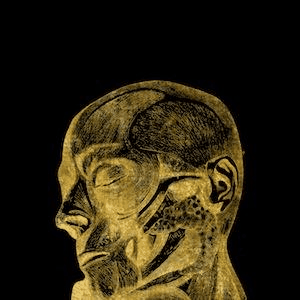As an on again off again collaborator/member of New Jersey punks Titus Andronicus, you might expect that Liam Betson (recording here as Liam the Younger), would release music featuring the same sort of Replacements indebted indie rock, but this really couldn’t be further from the truth. Other than bearing a similarity in fidelity to the first Titus Andronicus record, which Betson contributed to, these two re-releases on the venerable New Jersey based indie label Underwater Peoples dash any anticipation that he might bear any resemblance to his day act.
On these two early releases, instead of driving guitars and shouted literary vocalizations, we are treated to plaintive strums and mumbled turns of phrase, and it’s to great effect that Betson steers clear of the tropes of Titus. Perhaps comparisons to the band are unfair, information regarding Betson’s participation in the band at the time when he recorded these efforts are nebulous at best, so it’s better to look at these then as free of the fingerprints of the act that he is now back with.
Even from the beginning of After The Graveyard, the earlier of the two releases, its apparent that Betson’s songwriting chops are fully formed. It’s been noted that Patrick Stickles, frontman of Titus Andronicus, dislikes vocal comparisons to Conor Oberst, but such a comparison could certainly be applied to Betson. Especially in the banjo-strumming “This Land, Part 2,” both melodically and sonically Betson sounds like a Bright Eyes song filtered through a bit of tape his and stripped of the more cheesy sentiments that Oberst often offers up.
It’s the little things that After The Graveyard truly succeeds in, and its ultimately these little details that separates it from millions of records that do the same thing, or even from Clear Skies Over Black River. It’s the acoustic slide guitar in the background on the title track, it’s the opening line on “Songs of Living,” it’s the “fuck yous” on “If I Ever Live Alone,” little details each one, but crucial in the construction their respective songs. If every acoustic guitar toting wannabe songwriter had the attention to detail that Betson has, a world filled with Guthrie clones wouldn’t seem like such a bad thing. These songs remain fresh in a genre that’s been overpopulated long before Betson was around and will remain to be long after.
Clear Skies Over Black River, then, represents the other side of this coin. Though there’s nothing really to say that it’s worse on a global level, it’s missing those little moments that made After The Graveyard so distinct. The songs are still there, and Betson’s lyrics are up to the standard that the earlier release established, but it seems to focus less on the little ramshackle elements and more on the creative whole, which causes the record a bit more of homogeneity in a genre marked by it.
I’m not one to generally put forth one song as the crux of a collection of many, but the rambling changes of “Ode to Then” really represent the best of what Betson does on the whole. It’s hissy guitar strums and explorations of the internet as “our version of the wild west” seem representative of Betson’s whole M.O. There’s nothing here that’s groundbreaking, simple folk music has been around for many times the length of Betson’s life, but in its tape-hiss aesthetic and in Betson’s singular lyrical voice.
It’s a shame that Betson’s 2010 release Revel Hidden Worlds shucked a large amount of what made these albums special. While still interesting in it’s own way, the intimacy of these records is gone. Instead of the whispers of a guy in his bedroom, we’re treated to the wails of a garage band. No matter what the path Betson takes on further releases, whether in the vein of these Guthrie indebted collections, or further down the path of blown out country rock, these two albums here will provide a sufficient and interesting introduction to a songwriter whose work could, and has to this point, easily be ignored due to the shadow of his day band’s work.

